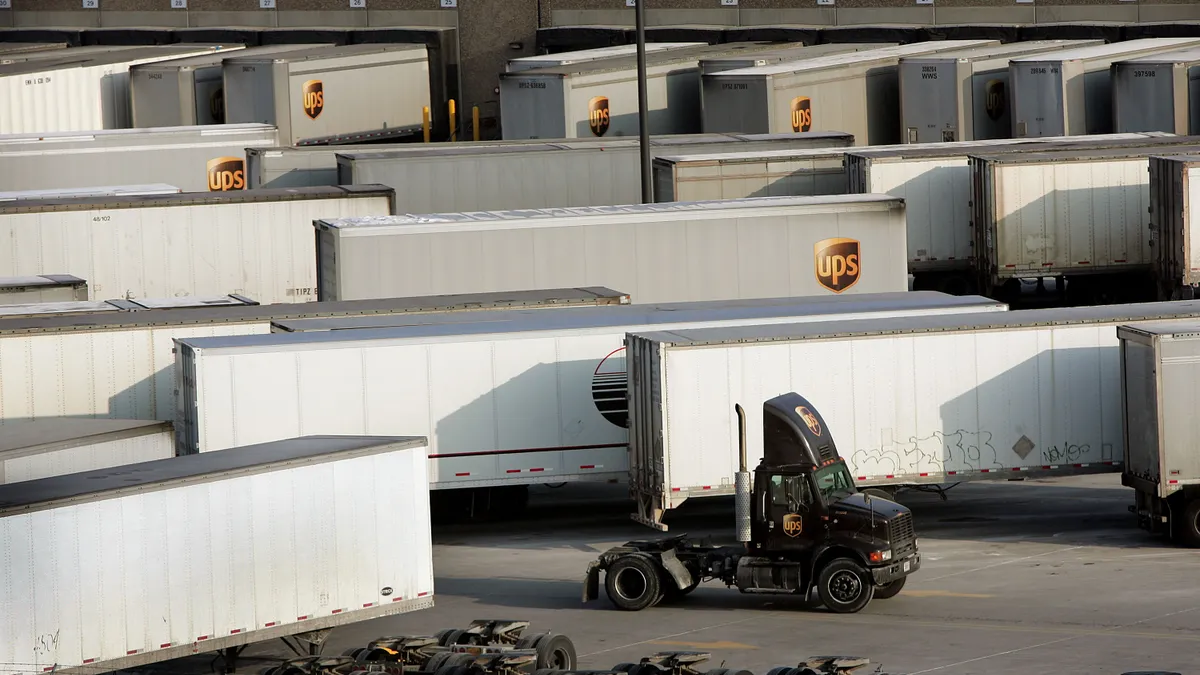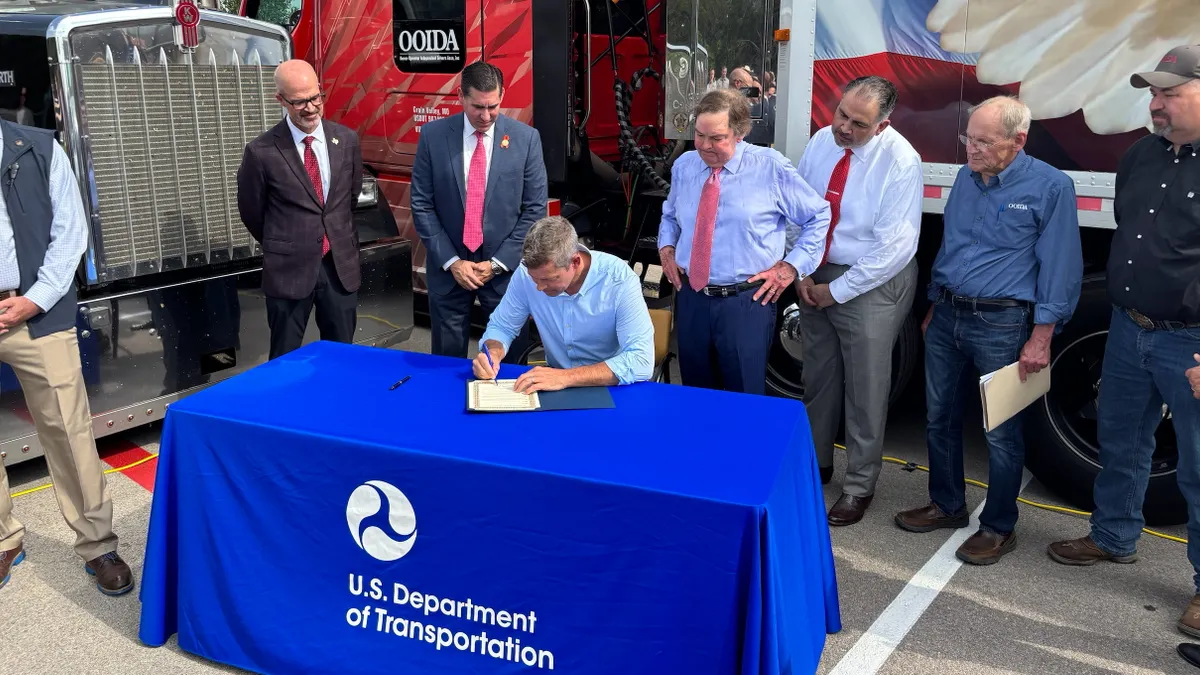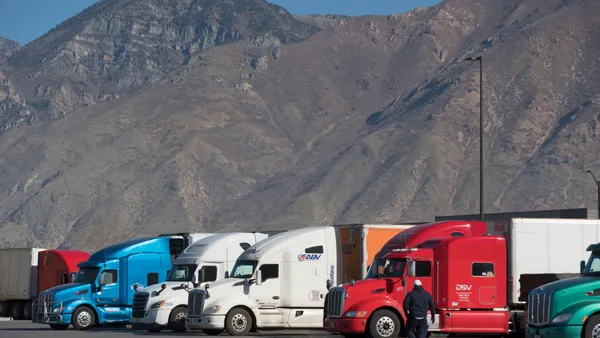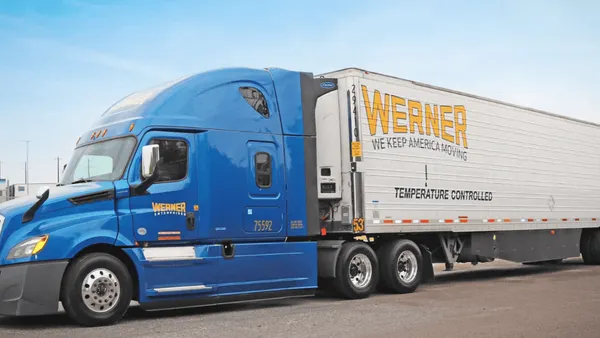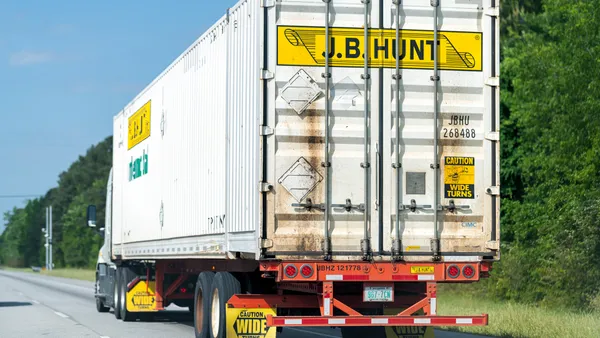Dive Brief:
- UPS has launched an initiative to reduce late departures and deliveries in its network, specifically targeting an improvement in on-time departures for the company's feeder truck drivers moving packages within its network, executives said on a Q2 earnings call Tuesday.
- The initiative, known as the “Total Service Plan,” includes customized dispatch routes for more than 60,000 UPS drivers. The strategy has already reduced idle time in the company's network, CFO Brian Newman said.
- "It's about getting back on time, and to dimensionalize that for you, a 10 minute improvement within the integrated network is worth $257 million," CEO Carol Tomé said.
Dive Insight:
Like rival FedEx's Network 2.0 plan, UPS is pushing for improved operational efficiency to boost both service levels and its bottom line. But Tomé pointed out that no network integration is involved in the Total Service Plan: "We already have an integrated network. Now, we're just running it the way it was designed."
Operating a more efficient and profitable network is a growing priority for both UPS and FedEx as parcel volumes have declined from their dizzying 2021 heights. FedEx Ground saw average daily volume fall 6% YoY in its most recently reported quarter. UPS' average daily volume in the U.S. fell 4% YoY in Q2, equivalent to 823,000 packages.
"The majority of the volume reduction from these customers was residential [deliveries]," Newman said. "We expected to fill this gap with other enterprise volume but macro conditions made that challenging."
More than half of the U.S. volume decrease came from a move by UPS' top shippers “to optimize the air and ground volume we bring into our network,” Newman said. The company has opted to limit less profitable residential e-commerce deliveries under its "better, not bigger" approach.
UPS' largest customer, Amazon, was among those affected by the shift in strategy. Volume and revenue tied to the e-commerce giant is falling, which Tomé said will give UPS room to grow in higher-yielding customer segments like small- and medium-sized businesses and healthcare.
UPS is already reaping the rewards of pushing for more profitable deliveries, as U.S. revenue per package increased 11.9% YoY in Q2.
Compared to the first half of the year, UPS expects volume growth rates to improve slightly in the second half while per-package revenue will increase at a slower rate.



